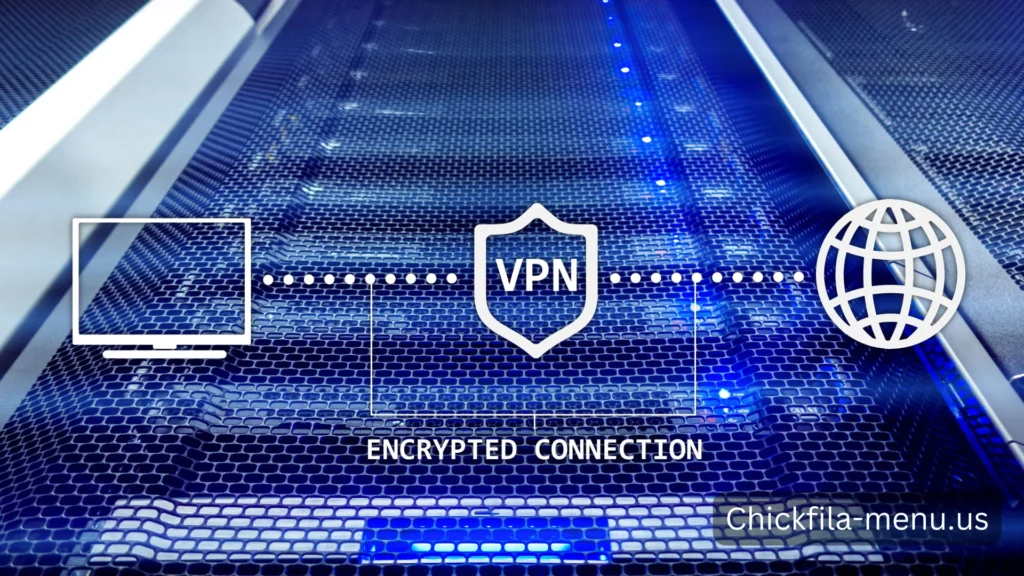What You Need To Know About 185.63.2253.200
An IP address, like any other IP address, plays a crucial role in internet communication as it identifies a device or network connected to the internet, allowing data to be routed correctly. In today’s digital landscape, it is essential to understand what IP addresses are, how they work, and what you can infer from them (and what you can’t infer).
185.63.2253.200: What is an IP Address?
In Internet Protocol, IP addresses are numerical labels assigned to devices connected to a computer network utilizing the Internet Protocol. They are like your computer’s postal address.
Specifically, 185.63.2253.200 corresponds to an IPv4 address, which is the older, more common type, consisting of four sets of numbers, or octets, separated by periods. Despite the current deployment of IPv6, a newer addressing system, IPv4 continues to be widely used.
Any IP address, such as 185.63.2253.200, has the ability to:
- A device can be uniquely identified on the internet by an IP address.
- Data can be sent to and received from the correct device when communication is enabled.
- It can be used to identify a device’s general location, even if it is not precise.
- Using IP addresses for tracking network activity is possible in some contexts (with appropriate authorization and for legitimate purposes).

IP Address Types
IP addresses can be formatted in two ways:
1. The IPv4 (Internet Protocol Version 4) protocol
- An IP address consists of four octets separated by dots (e.g., 192.168.1.1).
- A single octet ranges from 0 to 255.
- Approximately 4.3 billion unique addresses are provided.
2. The Internet Protocol Version 6 (IPv6)
- A string made up of alphanumeric characters (like 2001:0db8:85a3::8370:7334).
- The purpose of this system is to support a larger pool of addresses due to the exhaustion of IPv4.
What is the validity of IP address 185.63.2253.200?
Let’s examine the numerical structure of 185.63.2253.200 in order to determine if it is a valid IPv4 address.
| Position of the Octet | Assumed value | (0-255) is the valid range | The status of |
| 1st Octet | 185 | ✅ Valid | No Issue |
| 2nd Octet | 63 | ✅ Valid | No Issue |
| 3rd Octet | 2253 | ❌ Invalid (Exceeds 255) | Error |
| 4th Octet | 200 | ✅ Valid | No Issue |
Invalid IP address, verdict:
- There is an incompatible octet (2253) in the third octet of 185.63.2253.200, which makes it an invalid IPv4 address.
- The IP address 185.63.225.200 or 185.63.253.200 could also be a valid alternative.
There are several possible explanations for 185.63.2253.200
The IP is structurally invalid, so some common reasons for encountering this sequence include:
1. Error in the typesetting
- There is a good chance that the IP address was mistyped.
- Alternatively, 185.63.253.200 or 185.63.225.200 would be the corrected versions.
2. Errors in network entries
- IP logs can be incorrectly generated by incorrect manual entries in network settings or DNS configurations.
3. Cybersecurity threats and botnets
- In some cases, malicious bots and hackers hide behind incorrectly formatted IP addresses in order to hide their activities.
Also check: 264.68.111.161
The security implications of invalid IP addresses
The IP 185.63.2253.200 may be associated with cybersecurity threats, despite its invalid status. Here’s what you should know:
1. Identifying cyberattack risks
It is possible for malicious entities to use IP addresses close to 185.63.225.200 in the following ways:
- Attacks on servers using brute force.
- Attacks caused by Distributed Denial-of-Service (DDoS).
- An attempt to phish and redirect you to a fraudulent website.
2. Spoofing of IP addresses is a potential threat
In spoofing attacks, hackers sometimes use invalid IP addresses to hide their identities and manipulate firewalls.
3. The presence of a blacklist database
You can check cybersecurity databases to see if related IPs are flagged as dangerous.
Verifying and checking IP addresses for security
Here are some ways to verify an IP address if you suspect it is invalid or malicious:
1. Check your IP address using an IP lookup tool
Using these services, you can find out the correct format and owner of an IP address:
- Whois Lookup
- IPinfo.io
- WhatIsMyIP.com
2. Check if your IP address is blacklisted
If you want to determine if an IP address has a bad reputation, use the following method:
- IPDB Abuse
- Blocklist of Spamhaus
- The Shodan.io (a Cybersecurity Scanner)
3. Keep track of network traffic
A repeated appearance of an invalid or unfamiliar IP address in the logs may indicate a network intrusion attempt.
185.63.2253.200: An Overview of Its Structure
In order to understand the purpose of an IPv4 address like 185.63.2253.200, it’s important to break it down into two parts:
- In the network address, you can find out which network the device belongs to.
- An IP address is a unique identifier of a device within a network.
Subnet masks are used to differentiate network addresses from host addresses. They tell a network which bits of an IP address belong to the network and which belong to the host. IP addresses cannot be definitively divided into network and host portions without knowing the subnet mask.
255.255.255.0, for example, indicates that the first three octets represent the network, while the last octet (200) represents the host.
IP addresses: public vs. private
Differentiating between a public IP address and a private IP address is crucial.
- Internet Service Providers (ISPs) assign public IP addresses to modems and routers, so 185.63.2253.200 is likely a public IP address.
- A private IP address is used within a private network, such as a home network or office network. They are not directly accessible from the Internet. Common private IP addresses range from 10.0.0.0/8 to 172.16.0.0/12 to 192.168.0.0/16. An ISP assigns a public IP address to the router using Network Address Translation (NAT).
How can you interpret 185.63.2253.200?
It is possible to determine the following information about 185.63.2253.200 without the use of additional tools or data:
- This is a valid IPv4 address.
- The IP address is likely public (likely).
If you use an IP lookup tool or database (such as those offered by Whois services, IPinfo.io, or similar services), you can usually find the following information:
- A geolocation (approximately) is a collection of a user’s country, region, and city where their IP address is registered.
- The IP address range is owned and managed by the Internet Service Provider (ISP).
- This is the name of the organization using the IP address, which can be a business, university, or other entity.
- Information on how to report abuse.
The following considerations are important:
- The accuracy of geolocation isn’t always accurate, since IP addresses are only an approximation, and their location depends on the ISPs registering them with particular locations.
- ISPs often use dynamic IP addresses, which means user IP addresses may change over time. The information associated with IP addresses may therefore become outdated.
- It is important to be aware of potential privacy implications when using IP address lookup tools.
Use of 185.63.2253.200 for troubleshooting and security
It can be useful to know a device’s or server’s IP address when troubleshooting network connectivity problems. For example:
- You can use the ping command to test if a device with IP address 185.63.2253.200 is reachable. Success indicates that the device is connected.
- Data packets are traced using traceroute/tracert in order to find a bottleneck in the network.
As far as security is concerned:
- A firewall rule can be configured to allow or block traffic from a specific IP address, such as 185.63.2253.200. If you suspect malicious activity coming from this IP address, you should block it at your firewall. It is important to be cautious when blocking IP addresses, since blocking legitimate traffic might result in false positives
- Analyzing log files can identify suspicious activity and potential security breaches by identifying IP addresses contained in server log files, firewall log files, and other security log files.
Conclusion
Despite the fact that you can glean some information about 185.63.2253.200’s origin and potential use through IP lookup tools, it’s crucial to know its limitations and inaccuracies. By protecting your network and maintaining a secure online environment, you should use this information responsibly, ethically, and within the boundaries of the law. IP address information should always be used with care and with respect for the privacy of others.
Frequently Asked Questions (FAQ)
Is it possible for an IP address to have a number greater than 255?
The IPv4 address must have at least 0 octets. Any octet higher than 255 is invalid.
When an IP address is blacklisted, what does it mean?
Spamming, hacking, or fraud have been flagged as malicious activities for IPs that are blacklisted.
What is the best way to determine whether an IP address is safe?
Make use of online security databases such as:
- IPDB Abuse
- ViralTotal
Is it possible for hackers to use invalid IP addresses?
The technique of IP Spoofing allows attackers to generate invalid IP addresses in order to evade detection.
When an invalid IP appears in my network logs, what should I do?
- Check the IPv4 format (xxx.xxx.xxx.xxx).
- Make sure similar IP addresses aren’t blacklisted.
- Firewall settings should be configured to block suspicious traffic.
Final Thoughts
Due to an error in the third octet (2253), the IP address 185.63.2253.200 is invalid. However, similar IP addresses may exist and be related to cyber threats.
Be aware of unusual network activity by monitoring logs and verifying IP addresses before interacting with them.
It is possible to avoid security risks, prevent network breaches, and improve digital safety by following these steps.

Oliver Henry is a technology expert with a deep understanding of the latest innovations and trends shaping the digital landscape. As the publisher, he blends his passion for technology with a keen eye for detail, delivering content that informs and engages readers. Oliver’s work reflects his commitment to staying ahead of industry developments and providing valuable insights to tech enthusiasts.







